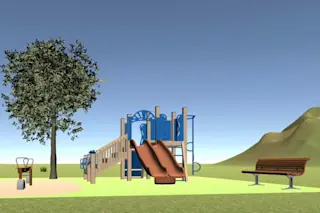The latest fitness fad has an unusual goal: bulking up the three pounds of mush between your ears. Sales of “brain fitness” software increased from a few million dollars in 2005 to $80 million in 2007, according to an estimate from the consulting firm Sharpbrains. Plenty more products are available on the web. Computerized cognitive training includes games that test memory, attention, and problem-solving skills, plus good old arithmetic and linguistic ability. Brain-training websites promise improved mental stamina, the ability to concentrate for longer periods, and a better memory for directions and names—even heightened mood.
The science behind these supposed brain boosters remains promising but inconclusive. Multiple studies in older adults indicate that on-screen exercises can slow age-related cognitive decline, but improving the cognition of other groups is another question. Recent findings do suggest that healthy younger adults can improve their smarts as well: The ability of twentysomethings to solve ...













